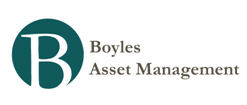The Extraordinary Popular Delusion of Bubble Spotting - By Jason Zweig
Can you spot a bubble?
Ever since 1841, when a Scottish journalist named Charles Mackay published the book known today as "Extraordinary Popular Delusions and the Madness of Crowds," the answer has seemed clear. If you watch carefully for signs of euphoria, you can sidestep the damage when markets go mad.
But bubble spotting isn't as simple as Mackay made it sound—even, it turns out, for Mackay himself. Investors should always guard against the glib assertions of pundits who claim they can detect bubbles before they burst.
It's also a reminder that expecting policy makers to predict the future by popping "bubbles in the making" is probably a bad idea.
…..
The great value investor Benjamin Graham suggested that investors should never have less than 25% or more than 75% of their money in stocks. He argued for reducing the allocation to stocks "when in the judgment of the investor the market level has become dangerously high." But, because no one can perfectly predict a bubble, you should never go either to zero or 100%.
After all, if identifying bubbles somehow became easy, investors would stop buying before prices got out of hand. So "being right about past bubbles does not automatically ensure that you will be right about the next," says Robert Shiller, the Yale economist who called both the Internet-stock and real-estate bubbles.
That's partly because many forecasters fall prey to overconfidence like Mackay's and partly because the markets are always in flux.
"I'm very skeptical whether anyone can predict bubbles reliably," says Mr. Odlyzko. "It's an arms race: Anytime you come up with a bubble detector, people will try to get around it."
- Peter Cundill's Book Recommendations
From There's Always Something to Do: There are a few books – really not that many – which I believe are indispensable reading for every serious investor in whatever facet of investment practice they may favor: Extraordinary Popular Delusions and...
- When Does A Bubble Spell Trouble? - By Jason Zweig
The minutes of the latest Federal Reserve policy meeting, released this past week, show that central bankers have been worrying that the financial markets might turn into a bubble — the term for a perilously overvalued situation that can burst without...
- Robert Huebscher Interviews Vitaliy Katsenelson
Paul Krugman wrote about China in his New York Times column last Monday. That’s a topic that you have researched closely. He said that "China’s story just sounds too much like the crack-ups we’ve already seen elsewhere," referring to the financial...
- The Absolute Return Letter - April 2010: When The Facts Change
We are currently in what I like to call echo bubble territory. I assume that most of our readers are familiar with the DNA of an asset bubble (even if Greenspan isn’t). Echo bubbles are children of primary asset bubbles and are usually conceived when...
- Why We’ll Always Have More Money Than Sense - By Robert Shiller
When it comes to market bubbles and how they are created, very little, if anything, has changed. This is because human psychology has not changed. Massive bubbles are created when large numbers of people buy into "new era" stories that exaggerate how...

